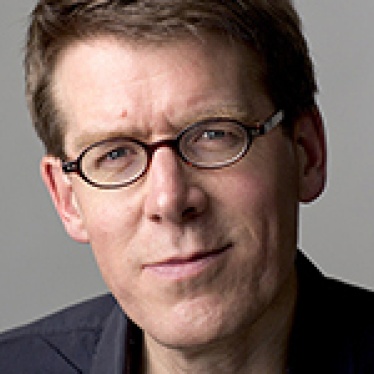Eight years have passed after one of the worst massacres in the former Soviet Union since its collapse. On May 13, 2005, security forces in the city of Andijan, Uzbekistan, opened fire on protesters, the vast majority unarmed, killing hundreds of men, women and children as they tried to flee. No one has been held accountable, and the authoritarian president, Islam Karimov, has defied calls for an independent investigation.
Since then Uzbekistan’s reputation as one of the world’s worst human rights abusers has only grown. In a brutal crackdown after the massacre, Uzbek authorities imprisoned dozens of human rights defenders and journalists and ejected human rights groups and international media from the country. Torture is rampant. In a shocking case from April 2012, officials beat Gulnaza Yuldasheva, who had been investigating officials’ involvement in human trafficking, with a rubber truncheon, dragging her by her hair before she lost consciousness.
How to handle relations with Uzbekistan has been a troubling issue for many Western countries since Andijan, especially the European Union and its members, who expressed outrage in the immediate aftermath and imposed sanctions. The last of these were lifted in 2009, though Uzbekistan met none of the human rights conditions the EU had set.
Uzbekistan has become a potent litmus test of the challenge of dealing with an authoritarian government with which countries need to “do business.” Uzbekistan provides a key supply route for the Nato-led mission in Afghanistan, and is an important, if awkward, player on regional issues. Karimov also craves the economic benefits and recognition from close Western ties.
The EU has resolved this quandary largely by choosing to see the glass half full on human rights, despite much evidence to the contrary. Yet the recent decision by the International Committee of the Red Cross (ICRC) to end prison visits in Uzbekistan has undermined that approach. And it raises a wider question: At what point will the EU and its members acknowledge that they are having no impact in improving Uzbekistan’s human rights and change their strategy?
Even the most authoritarian governments usually allow ICRC visits, given the group’s terms of confidentiality, which makes the forcing out of the group a telling indictment of Uzbekistan’s rights record.
When regular ICRC visits resumed in 2009 after Tashkent blocked them for five years, EU foreign ministers cited this as one of the “positive steps” allowing for lifting sanctions. Another had been the introduction a year earlier of habeas corpus—the right to be brought before a court following arrest— a fundamental protection against torture. But Uzbek authorities have never meaningfully implemented the mechanism. So these “steps” have crumbled to nothing.
The ICRC has drawn a line in the sand. The EU and its members should respond in an equally substantial way.
The EU should put Uzbekistan on notice that unless it makes measurable improvements in human rights, EU foreign ministers will reinstate targeted restrictions such as visa bans and asset freezes. The head of Uzbekistan’s ruthless National Security Services (SNB), Rustam Inoyatov, would be a good first candidate. He was on the EU’s 2005 sanctions list, and continues to control the agency responsible for torturing numerous prisoners. Uzbekistan has for over a decade cynically blocked access to 11 UN rights monitors – putting it in worse standing than even Iran, China or Turkmenistan. The EU and its allies should ask the UN Human Rights Council to appoint a country rapporteur to draw global attention to the human rights disaster in Uzbekistan and force an international debate about its abuses.
Improved human rights and rule of law would resonate widely in a region dominated by aging autocrats, corruption and abuses of power by entrenched elites. Such steps would also go some way to honoring the Andijan victims - and showing that the EU is capable of saying enough is enough.
Hugh Williamson is Europe and Central Asia director at Human Rights Watch.
Steve Swerdlow, esq., is a Central Asia researcher at Human Rights Watch.









